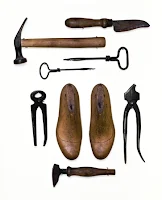 |
| Unchecked greed is destroying our planet. |
Greed is a problem that must be addressed. We have recognized this for a long time, but so far sating our greed has been too enticing.
The Great Dictator, a 1940 American political satire comedy-drama film written, directed, produced, scored by and starring Charlie Chaplin, cast its gaze on the problems created by the poison of greed.
"We all want to help one another. Human beings are like that. We want to live by each other’s happiness - not by each other’s misery. We don’t want to hate and despise one another.
In this world there is room for everyone. And the good earth is rich and can provide for everyone. The way of life can be free and beautiful, but we have lost the way.
Greed has poisoned men’s souls, has barricaded the world with hate, has goose-stepped us into misery and bloodshed.
We have developed speed, but we have shut ourselves in. Machinery that gives abundance has left us in want. Our knowledge has made us cynical. Our cleverness, hard and unkind. We think too much and feel too little.
More than machinery we need humanity. More than cleverness we need kindness and gentleness. Without these qualities, life will be violent and all will be lost...."
Gandhi said something similar when he said, "Earth provides enough for everyone's need, but not for everyone's greed."
Kindness and gentleness are the antidotes to greed. They can be used to cultivate contentment and quell the call of covetousness.
Everything changes when we are kind and gentle with ourselves, others, and the Earth. Then we see that there is enough for everyone. Life can be free and beautiful.

















